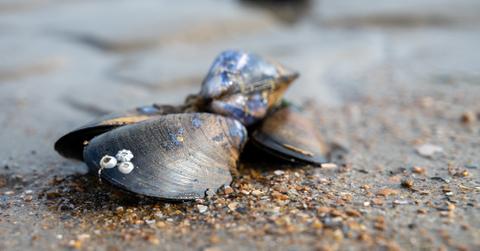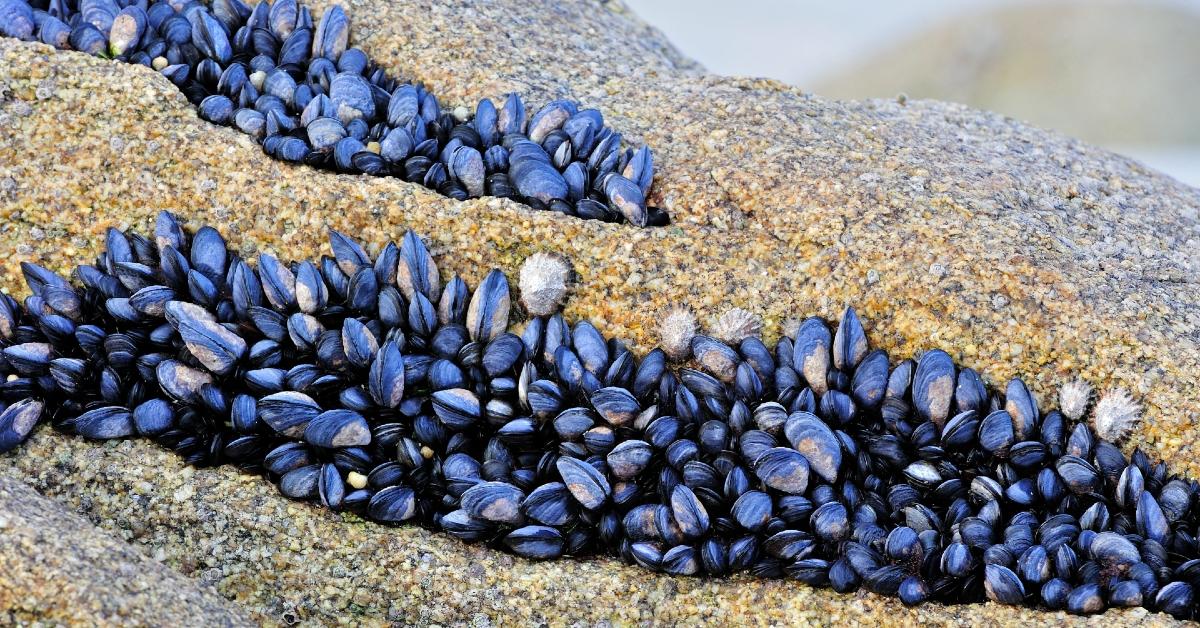
From Elmer’s Disappearing Purple Faculty Glue Sticks to the infamous Gorilla Heavy Accountability Spray Adhesive, the world of glue is large, to not level out sticky. Sadly, like many obligatory enhancements, most trendy glues aren’t eco-friendly, as they’re normally made out of petroleum-derived synthetic parts. Sadly, the petroleum commerce does catastrophic hurt to the setting, and petroleum-based merchandise do not safely break down after use.
Article continues underneath business
So, does sustainable glue exist? It constructive does, and one particular eco-friendly adhesive found inspiration on the bottom of the ocean.
Study on to review a revolutionary mussel-inspired glue, along with just some eco-friendly glues at current within the market.

Article continues underneath business
Researchers took inspiration from mussel proteins to create an eco-friendly glue.
A September 2023 Nature article highlights a “sustainably sourced, super-strong adhesive” that is soya oil-based and impressed by the proteins mussels use to remain to rocks.
In step with researchers Clayton R. Westerman, Bradley C. McGill, and Jonathan J. Wilker, said glue is “sturdy, reversible, and fewer carbon intensive to supply than current adhesives.” Their evaluation article presents a aggressive adhesive system fabricated from epoxidized soy oil, malic acid, and tannic acid. “All parts are biomass derived, low value, and already on the market in big parts,” the abstract reads.
This new adhesive mimics a typical glue, epoxy, which mixes two chemical groups that react and kind a bond.
“Do you have to go to the seashore, you will notice every kind of sea creatures caught to the rocks, correct? Quite a few them are making adhesives to do this,” Purdue Faculty researcher Jonathan J. Wilker said on the Nature Podcast, significantly mentioning mussels and oysters.
Per the Faculty of California, Berkeley, a mussel’s foot secretes skinny, hair-like strands of liquid proteins, generally known as byssal threads. These byssal threads anchor the animal to the ground of its choosing.
Article continues underneath business
These creatures make a mix of proteins, which have a singular chemical group generally known as catechol. “It introduces a type of cross-linking chemistry that you don’t get with common proteins,” Wilker continued. “We took some compounds which have among the many chemistry we see throughout the sea creatures, and we added that to the system.”
The researchers moreover took the petroleum-based epoxy compound and substituted in epoxidized soy oil, as soy oil is “one of many essential extensively produced sustainable pure provides,” consistent with Wilker.
Article continues underneath business
Though Wilker was cautious to not make ensures, he relayed that this contemporary glue system has an fairly low environnmental footprint.
“With our system, on account of the crops take up rather a lot CO2 to kind the weather that we wish — even with the heat that we add into it, it’s possible you’ll get the numbers to be actually carbon detrimental,” he said.
The soy oil glue is “on par” with mainstream petroleum-based glues, nevertheless the employees is hoping to boost the tactic and improve testing.
Wilker has been engaged on this mussel-inspired innovation for years, nevertheless he is not the one one. UC Berkeley engineer Phillip Messersmith has, too, labored to create a glue impressed by mussel proteins. Additional significantly, Messersmith has developed a glue that is “sticky, sturdy, and pliable when moist” for fetal surgical procedures, per a 2016 Berkley Data article.
Northwestern’s Nathan Gianneschi and Or Berger have moreover created protein-like polymers that may be utilized “in a biomedical context.”
It is unclear whether or not or not the enhancements at UC Berkley and Northwestern Faculty are sustainable, nonetheless.
Article continues underneath business
Eco-friendly glues you should buy correct now:
They won’t be impressed by mussel foot glue, nevertheless there are some eco-friendly adhesives at current within the market.
Onyx and Inexperienced makes a plant-based liquid glue and a glue stick which is likely to be unhazardous and guarded for teens; Tessa Bunny’s makes a unhazardous and petroleum-free Pure Faculty Glue; and from mounting and hanging adhesives to classroom glue sticks, Tesa affords a wide range of eco-friendly glues.
You possibly can too merely make your private do-it-yourself glue that is protected for teens by following this recipe by the weblog Little Wild & Inexperienced.




